In a week where Americans turned out in record numbers to demand change, the movie of the week (November 1-7, 2020) is “V for Vendetta”.
Enter the dystopian thriller, based on a graphic novel series and inspired by true events, V for Vendetta.
“Remember, remember the fifth of November, the gunpowder, treason, and plot. I know of no reason why the gunpowder treason should ever be forgot.”
Thus begins V for Vendetta, as Natalie Portman’s character recites a nursery rhyme about a failed plot by Guy Fawkes to blow up the British Parliament in 1605.
The film’s story was sourced from the 1980s graphic novel series by Alan Moore and David Lloyd, which famously put forth the idea that, “People shouldn’t be afraid of their government, governments should be afraid of their people.” The film introduces us to a character named V wearing a Guy Fawkes mask, as he attempts to bring down the corrupt authoritarian government that rules over Britain in the film’s dystopian future — reminiscent of Nazi Germany — by convincing citizens to stand up and rule themselves.
Released in 2005, just five years removed from 9/11, a blockbuster film daring to turn a terrorist into a sympathetic hero was polarizing, to say the least. In retrospect, however, the film takes on new meaning.
Directed by James McTeigue, and produced by the Wachowskis (in their first big project following the Matrix trilogy), this is a shockingly subversive studio film about how fear numbs us and turns us against one another, leading to despair and apathy. And it’s the apathy which gives rise to corruption — with leaders all too willing to capitalize on the people being too broken to see, or care, what’s happening all around them. Although the film was widely panned upon its release, both from reviewers and even from Moore himself, V for Vendetta now seems to serve as a frighteningly prescient look at America in the grip of rampant political fearmongering and policies designed to divide rather than unite.
Not only does it serve as a cautionary tale for the trajectory of our country, but it also echoes terrifying events that have, in their fundamental essence, already occurred. The film’s central themes about fascism and the creeping death of liberty, when the people voluntarily abdicate their rights, are not new ideas. Instead, they simply become painfully relevant again whenever there is a new attempt to undermine the tenants of democracy by those in power.
THE RIGHT FILM FOR THE RIGHT TIME
The film is set in the late 2020s, and the parallels to real-world 2020 are alarming.
A pandemic has been unleashed on the world, crippling America, a country now on the brink of economic ruin and civil war. Meanwhile, London is now under the authoritarian rule of the fascist High Chancellor Sutler (John Hurt), the leader of the Nazi-esque Norsefire party, a man who is “completely single-minded and has no regard for political process”. His party rose to prominence by exploiting widespread fear and panic, elevated by neoconservative support and extreme anti-immigrant/anti-gay sentiment. The party is supported by state-run media and propaganda, while the state-sanctioned church wields unchecked power. Surveillance of citizens is constant and almost casual.
In this oppressive world, we meet Evey Hammond (Natalie Portman), an employee of the British Television Network. One night, she is threatened with sexual assault by secret police, only to be saved by a mysterious man named V (Hugo Weaving). V wears a Guy Fawkes mask, and like Fawkes, has a plan to blow up Parliament and assassinate several members of the government responsible for the rise of the dangerous Norsefire regime.
V for Vendetta also features a character known as “The Voice of London”, Lewis Prothero (Roger Allman). He regularly goes on TV and broadcasts propaganda and hateful, divisive rhetoric — blaming the problems of the world on “immigrants, muslims, homosexuals, and terrorists”.
Stephen Rea plays Finch, a Scotland Yard inspector who is on V’s trail. During his investigation, he discovers that the government engineered the crisis that led to its power grab — releasing a biological attack, a disease known as the St. Mary’s Virus that has killed over 100,000 people by the time the film starts — and blaming the attack on terrorists. (It’s worth noting that, as of the writing of this piece, the ongoing COVID-19 pandemic has claimed more than 1.24 million lives worldwide, a number that greatly eclipses that of the fictional St. Mary’s Virus in V for Vendetta.)
It is revealed that the masked vigilante V was one of many dissidents forced into a concentration camp by the government. These camps were extermination zones for those considered deviant by the white, Christian dictatorship. This includes Jewish people, Blacks, socialists, LGBTQ+ people, and immigrants — reflecting how authoritarian governments tend to prey on marginalized groups.
In V for Vendetta’s bleak, fictionalized future, a country has closed its borders to all immigrants. A closeted gay man, Gordon Deitrich, is brutally murdered for having a copy of the Qur’ann in his home. A little girl is murdered by the police for wearing a mask and spray-painting a wall. A woman is imprisoned and killed for being gay. And widespread injustice and inhumanity has become normalized. It’s a glimpse at a not-so-distant future that now feels all too real.
WHY IT MATTERS
Remarkably, V for Vendetta is a film that has managed to grow more poignant over time, rather than less.
While the film is set in London, it’s undoubtedly a commentary on corruption in the American government and the insidious way power-hungry politicians have exploited the worst bigotries of its citizenry. Not only has a very real virus wreaked havoc in the world of V for Vendetta, but so has a virus of greed and inhumanity, corrupting the foundations of democracy.
While Lewis Prothero champions “strength through unity”, he simultaneously dehumanizes large swaths of the population — villainizing anyone seen as “other” due to religion, sexuality, ethnicity, or place of birth. It’s not difficult to see parallels between this and much of the current anti-immigration rhetoric we’ve seen over the past few years. From suggestions that we institute a national registry to keep track of all Muslims — the first step Nazi Germany took before rounding up the Jewish community — to political candidates being openly endorsed by White Nationalist groups, to crowds chanting “build a wall” at political rallies; the rise of toxic vitriol and marginalization of minority voices is a dire warning about where we could be headed if we do not stand up en masse to these injustices.
In fact, V for Vendetta is most effective at illustrating how little it takes for society’s thin veneer of civilization to crumble under the weight of fear. Demagogues like Sutler exploit those fears and frustrations with ease, building power on a foundation of hate, nationalism, and bigotry — so destructive it seems almost improbable. The most important lesson the movie teaches, is distilled by this scene, where V makes it clear who is really to blame for sacrificing liberty for security.
“There is something terribly wrong with this country,” he begins. “Cruelty and injustice, intolerance and oppression. If you’re looking for the guilty, you need only look into a mirror.”
As depressing as that is, the film also champions the power of the silent masses to stand up as an indomitable force against a government that oppresses and silences them. When people don’t like what their government is doing, they can use their voting power to remove those from office who don’t represent their will. It may not be as dramatic as blowing up Parliament, but it’s much more civilized — and, ultimately, much more effective. As long as people who care about their future show up to vote, they can prevent the dystopian futures imagined in films like V for Vendetta.
And that, right there, is exactly what we must always remember, remember.
WATCH IT NOW
In the current world, where white supremacy is prevalent and major world forces are adopting isolationist stances, V For Vendetta cannot help but feel prescient. Ultimately, however, it’s a powerful reminder to not let fear triumph over humanity. Do not let your leaders make you afraid of your neighbors. Do not be complacent in the demonization of others through inaction. Find your voice and wield your power.
161 million Americans did just that in Tuesday’s election (which, interesting, fell only a couple of days before the 5th of November), and the resounding majority voted to stand up and fight for the soul of America.
Celebrate by watching V for Vendetta, now available for free on Tubi.


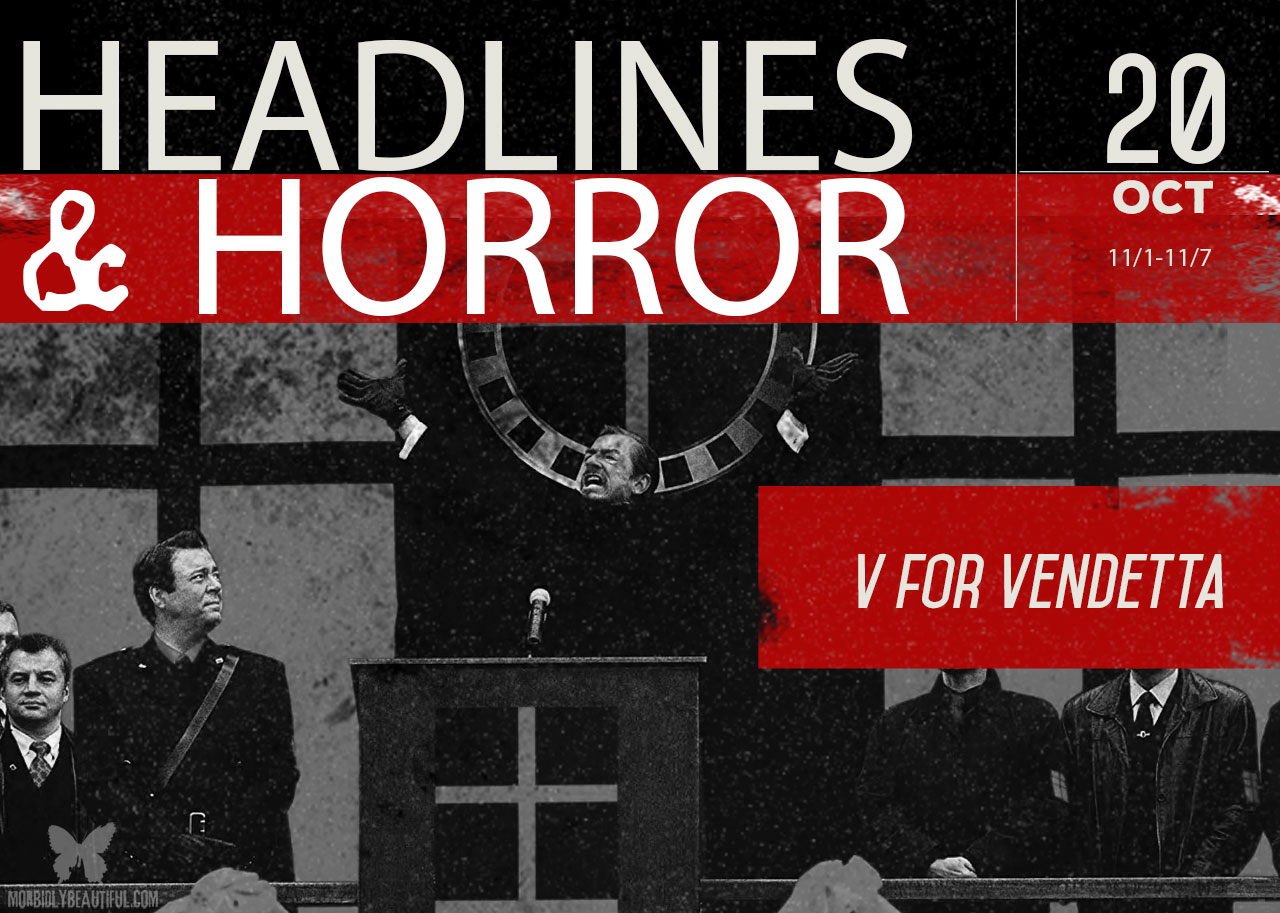
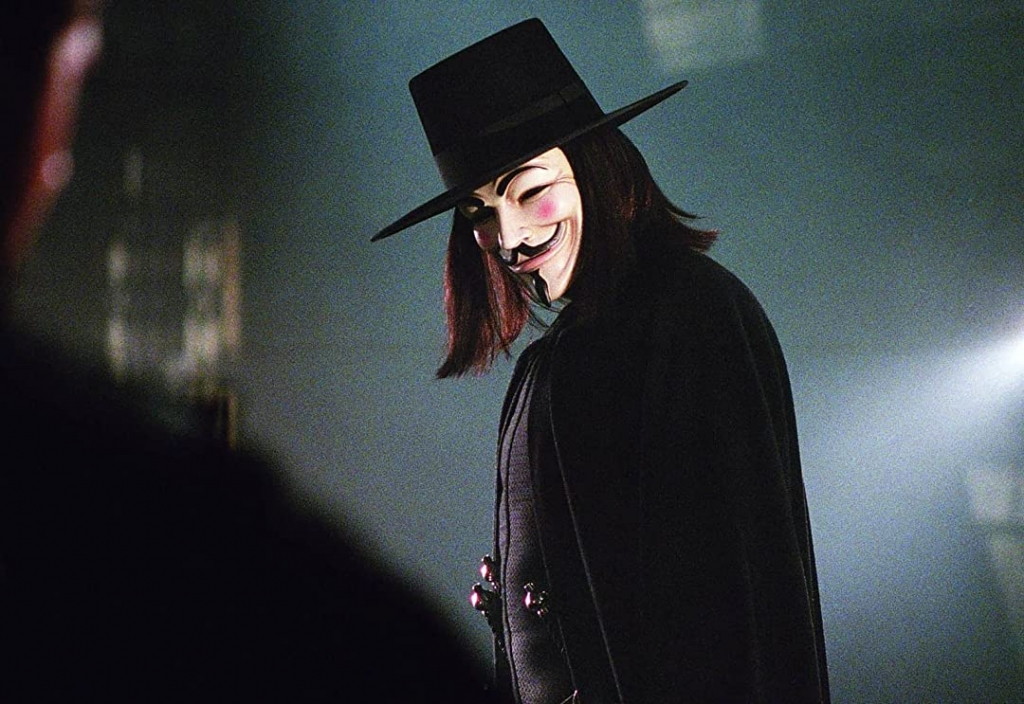
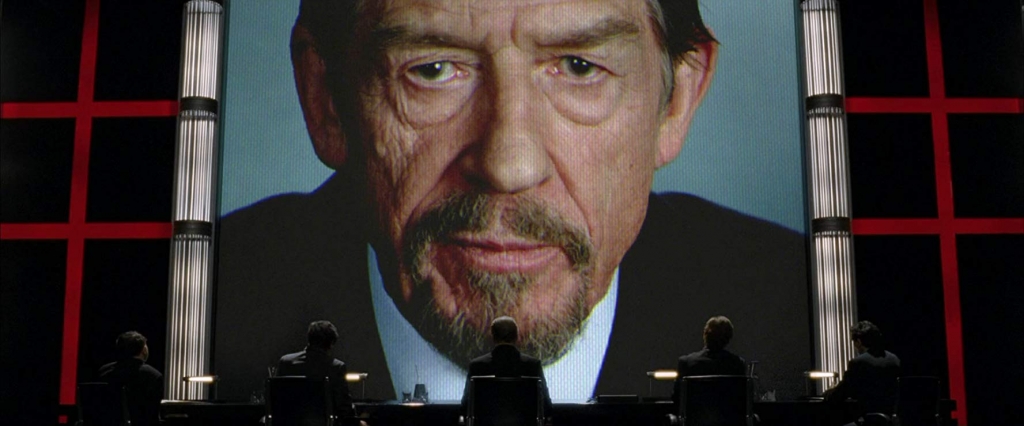

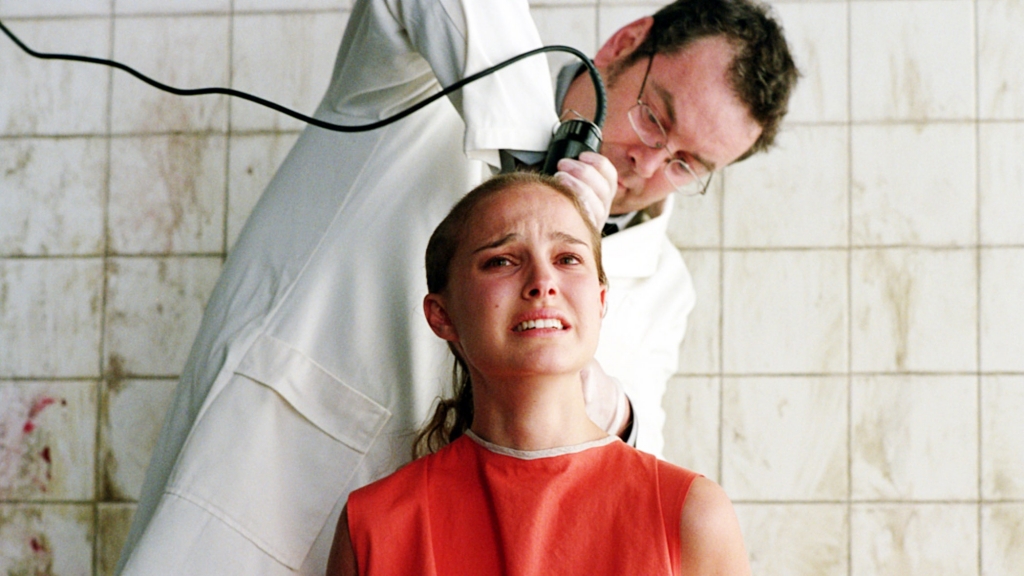
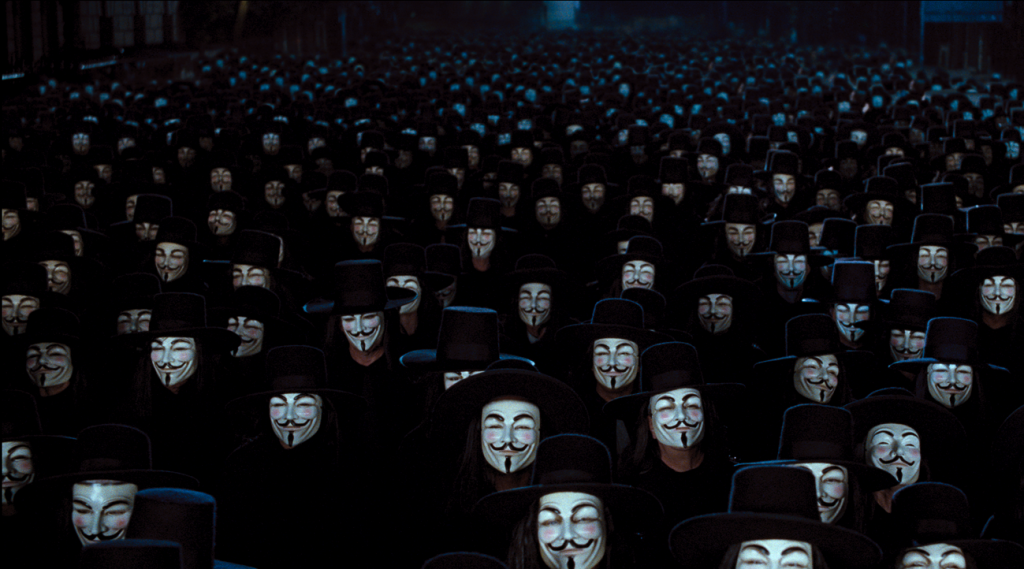










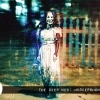
Follow Us!